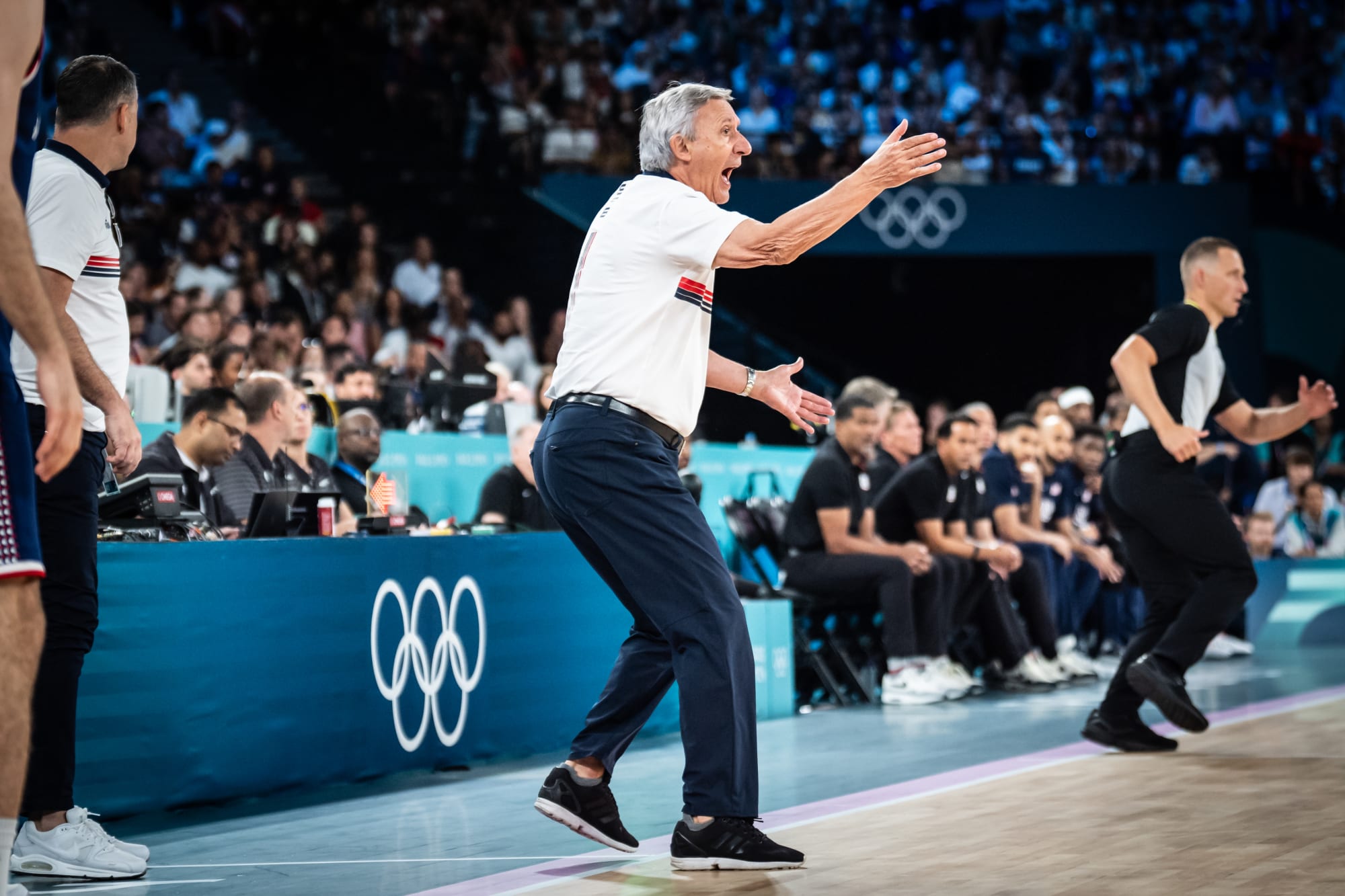

BELGRADE (Serbia) – FIBA legend Svetislav Pesic had ended his national team coaching career with Serbia.
Just weeks after leading his homeland to the bronze medal at the Men’s Olympic Basketball Tournament Paris, Pesic, 75, has decided it’s time to depart.
“I will always be there for Serbian basketball. Even before Paris, I said it was my farewell to the national team,” he said yesterday in an interview with politika.rs.
“
I’ve always been aware that the coach is there for the players, not the other way around
“If you want to achieve great things, it shouldn’t be easy, and that’s why we shouldn’t focus too much on the results, but rather on the tasks set in the process of achieving those goals. Experience has taught me that even realistic goals are hard to achieve! I’m most proud of the process, which wasn’t easy.
“The key was convincing the players of what I believe in. I’ve always been aware that the coach is there for the players, not the other way around, and that the coach should never be above the team; but the players must also know that there’s only one person to follow, and that’s the coach. If you find that balance, then the process toward the goal is simpler. Communication isn’t about the coach talking and everyone else listening.”
Pesic is widely viewed as one of the greatest coaches of all time, a play-caller that that led Germany to FIBA EuroBasket 1993 glory on home soil, and Yugoslavia to titles at EuroBasket 2001 in Türkiye and the FIBA Basketball World Cup 2002 in Indianapolis.
His Yugoslavia team 22 years ago defeated the USA in the Quarter-Finals before going on to lift the Naismith Trophy. That success over the Americans was the first time a country knocked a USA team made up of NBA players out of a tournament.
Seventeen years later, with Serbia looking for a spark after a disappointing fifth-place finish at the 2019 World Cup in China, the country’s basketball federation turned to Pesic and he answered the call.
He first guided the national team to a star-studded FIBA EuroBasket 2022, and the team won five games in as many attempts before slipping up in the Round of 16 to Italy, 94-86. Serbia lost that game despite leading by as many as 14 points midway through the second quarter.
Italy derailed Serbia and Pesic in the Round of 16 at EuroBasket 2022
It was a crushing defeat as Serbia had one of the best players in the world, Nikola Jokic, on their team.
Yet without Jokic, Pesic worked his magic one year later at the World Cup in Manila, leading the country all the way to the Final before it fell to Germany, 83-77.
Second place in a 32-team World Cup was viewed as a huge success, and it fueled hopes of a first gold medal at the Olympics for Serbia the following year in France.
In Lille, Pesic’s team didn’t have its best game in the Olympic opener against the USA, falling 110-84, with the hot-shooting Americans making 18 of 32 (56%) attempts from 3-point range and Serbia managing just 9 of 37 (24%).
Yet benefiting, perhaps, from a favorable schedule, Serbia bounced back with convincing wins over Puerto Rico (107-66) and South Sudan (96-65) to advance to the Quarter-Finals.
Australia looked as if they might humiliate Serbia in their last-eight showdown when they opened up a 24-point advantage early in the second quarter, yet Pesic made the right calls and got his players to maintain their concentration. They battled back to win after overtime, 95-90.
Pesic and Serbia beat Australia in overtime
With a second chance to beat the USA, in the Semi-Finals, Serbia threw an almighty scare into the four-time defending champions. Serbia went in front by 17 points in the second quarter and still had a 10-point lead early in the fourth quarter, yet they couldn’t stop Stephen Curry.
Curry spoiled Serbia’s Olympic Semi-Final in Paris
The USA guard exploded for 36 points, making 9 of 14 from deep, to lead the Americans to a 95-91 win.
Despite the bitter disappointment, Pesic again got his team to refocus and they meted out some punishment against Germany to gain partial revenge for their World Cup setback. Serbia won the Bronze Medal Game, 93-83, to reach the podium for the second straight year.
“
Immense potential for the next Olympic cycle
“In my deep conviction, a team was created with immense potential for the next Olympic cycle leading to Los Angeles 2028,” he said. “I am convinced they are hungry for success and eager to prove themselves in future competitions. I see that on the players’ faces, I see their strong motivation. Priorities change, and their club commitments will certainly influence this process. Everything that happened in the last three years, especially in Paris, shows that the players have definitively understood that in their careers they have two teams: one where they earn money, and the other – Serbia, where their heart is and where they have a special motivation to play against the world’s best. I am sure that all the players that participated in both preparations and competition have the potential to continue progressing.”
Pesic is leaving Serbia in a good place and has himself exited international basketball as a winner.
Ushered into the FIBA Hall of Fame in 2020, Pesic has ties to the international game dating back to 1984, when he took the helm of the Yugoslavian youth national team.
He is the only coach to win a EuroBasket with two different countries, Germany and Yugoslavia.
Hugely successful as a club coach as well in various European countries but primarily Spain and Germany, Pesic will be always be remembered for his coaching acumen, his ability to come up with game strategy, to make adjustments during contests and for his ability to help players, young and old, reach their highest level of performance.
FIBA







